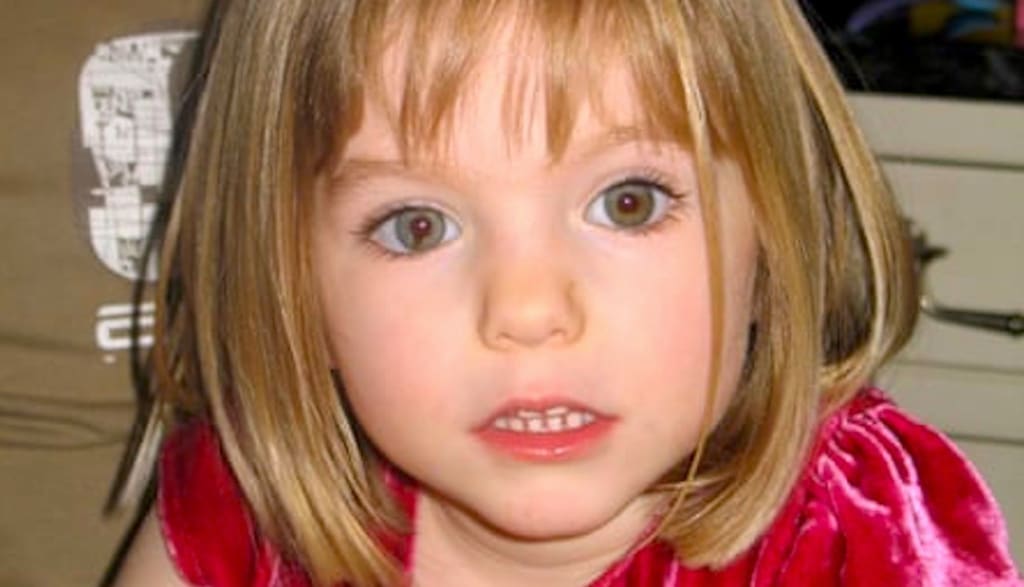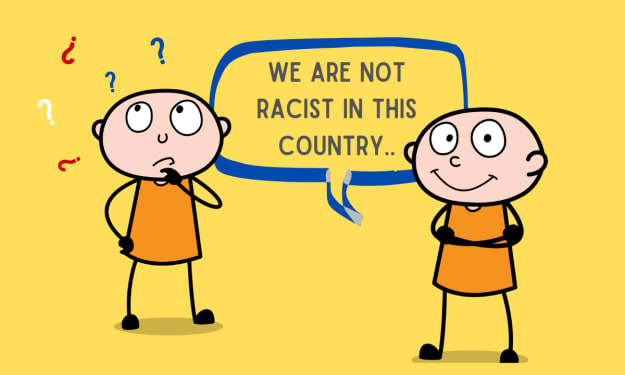This A Photograph Of The Toxic Media Culture In Britain
Madeleine McCann story was never going to go away. And quite rightly so.

We remember the three-year-old girl who would now be a teenager—probably planning another family beach holiday. In a year time, she would be off to university. Maybe she would follow her parents' path to medical school. Instead, she is frozen in time—the blonde three years old girl who vanished from the holiday apartment she was staying with the rest of her family on 3 May 2007.
Madeleine McCann's disappearance is essentially a hard-to-accept tragedy.
Those of us who followed this story saw Kate and Gerry McCann come out each morning from their Praia da Luz apartment and drop off their twins younger than Madelaine, Sean and Amelie, to continue the campaign to find their little girl, knows that too well. Never before, people from all backgrounds, including hardened hacks so desperately hoped to stumble upon a small girl – left by her kidnapper in a Portuguese alley.
This is a tale uniquely shaped by British media culture.
It is so British that the Portuguese media at first gave little consideration to the latest suspect, revealed a few days ago. Motive, means and style all match in convicted German paedophile Christian Brückner – who, of course, is innocent until proven guilty. We know the opportunity was also there.
When the Brückner news came out, the Portuguese newspapers did not immediately show much interest. Público newspaper, on June 4, talked about "the latest suspect" (from a long list). It reported on Friday how Praia da Luz 'wants the case to be closed'. People were tired of the old story still haunting the summer resort kept alive by the British media jumping on any new clue.
The Portuguese media are not indifferent. They had moved on, partly in response to the heavy-footed British press and its mostly condescending approach to the Portuguese people and authorities.
The McCann story, admittedly, is also a photograph of the toxic media culture in Britain.
By May 2007, more than 10 million Brits spent the summer holidays in Spain and Portugal. One million were living there. Many proved little or no consideration in the host countries.
They created, too, a degree of issues. British visitors kept local police and emergency services occupied by requiring rescue from drunken night swims, choking on their vomit, overdosing, fighting outside night-clubs, and falling, jumping or getting pushed off balconies. Sometimes they hit or stabbed one another. In the most severe tragedies, toddlers drowned in swimming pools.
Before Madeleine disappeared, a British little boy only three months old was found in a pushchair on a sidewalk in the Algarve's city of Faro. His parents had dumped him there before flying back home to Gatwick. The Portuguese people were horrified. British tourists were good for the economy, but they also did very bizarre and sometimes inhuman things.
British tabloids went for all these stories. Part of their readership was sitting on the beach, reading season publications published on Spanish papers.
The McCanns were not that sort.
Both Kate and Gerry are doctors. They were the perfect victims, in reality: the blonde white girl with professional parents. These were the people the media believed they were talking to – white, middle-class families, after all. But British kids go missing more often than we 'd like. They rarely get this much attention.
When the disappearance happens overseas, it is always somehow more intriguing. That feeds into a very British fear of the foreign – permitting to blame other cultures. That was visible in the battle fought between the British media and Portuguese counterparts, and by relevant police sections in both countries.
Within days, Kate and Gerry had built up a strong relationship with Sky News – with the 24-hour service provided by Rupert Murdoch.
Sky put the McCanns at the top of all news programs.
Reporters arrived from the Daily Mail and elsewhere, as broadsheets had to catch-up.
It went on for more than a month. It ended when the family drove to the airport one early morning, with a crowd of reporters and photographers around them, bristling with camera lenses.
In between, as real stories went dry, tabloid toxicity took over.
Negative stories targeting the McCanns but also the Portuguese police spread.
The year later the Express newspapers had to pay £550,000 to the family. "The common theme of the articles was to suggest that Mr and Mrs McCann were responsible for Madeleine death … and that they had later disposed of their daughter's body," lawyers said. The McCanns later became the key witnesses to the Leveson inquiry on press misconduct.
The violent and criminal behaviour of mid-2000s tabloids has since migrated (without reporters) to Facebook and social media in general. Conspiracy theories fed by poisonous discourse and absurd mad-theories on "white slavery".
Yet the tone was set long before.
It managed to turn the Portuguese against the story and exasperated the tolerance of the people in Praia da Luz. On Thursday evening, many of them spoke of a terrible experience from another era – yet, the newest appeal relies on people recalling places, events, vehicles and telephone numbers from thirteen years ago.
So even though it is such a high-profile British story, the Portuguese will eventually resolve the crime.
About the Creator
Anton Black
I write about politics, society and the city where I live: London in the UK.






Comments
There are no comments for this story
Be the first to respond and start the conversation.